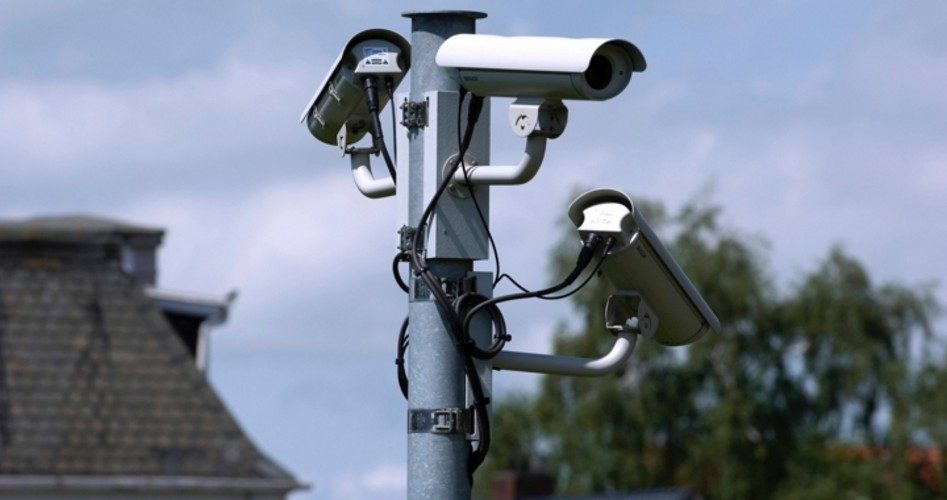
It may be close to the truth that “You Can’t Fight City Hall,” but close doesn’t count, it seems, when it comes to one man’s successful fight to stop the government’s constant surveillance of people under no suspicion of wrongdoing.
Michael Maherrey, the communications director for the Tenth Amendment Center, was sued by the city of Lexington, Kentucky, in an effort to prevent Maharrey from discovering the scope of the city’s surveillance system. The city’s law enforcement admitted having deployed 29 “mobile surveillance cameras,” but they refused to disclose why the cameras were in use or how much they cost the taxpayers of Lexington.
The Lexington Police Department (LPD) claimed that they were exempt from releasing the information sought by Maharrey because such disclosure could threaten “homeland security.”
The city’s attorney disagreed, and ordered LPD to release all the information relevant to Maharrey’s request.
Not satisfied with the decision, the LPD issued a summons to Maharrey, suing him, likely in an effort to dissuade him from pursuing his search for the scope and purpose of the city’s surveillance of its citizens.
Here’s the story of the city’s lawsuit as told by Maharrey himself:
In court, the police basically argued that disclosing information about their cameras would render them ineffective and potentially jeopardize officer safety. It remains unclear how knowing what kind of “hidden” cameras the police own would make them ineffective. They also asserted that providing information about their surveillance activities would create an “undue burden.” In a nutshell, the city claimed that the investigation of crimes facilitated by the cameras constitutes “an important government interest” that warrants denial of the information.
The Lexington Police Department was suing a citizen of that city — a citizen the department was ostensibly created to protect and defend — to keep that citizen from finding out why the police were watching him and his fellow residents, in defiance of the Fourth Amendment’s requirement that no unwarranted search be conducted except “upon probable cause, supported by Oath or affirmation, and particularly describing the place to be searched, and the persons or things to be seized.”
Unconvinced, Fayette County Circuit Judge John Reynolds issued an order granting Maharrey’s appeal for summary judgment.
“In sum, this Court finds that the plaintiff, LFUCG [Lexington-Fayette Urban County Government], has failed to assert an applicable provision of the KRS [Kentucky Revised Statutes] or other binding precedent which would allow the denial of the information requested by Maharrey. Therefore, LFUCG has failed to meet its burden of proof, and pursuant to ORA [Open Records Act] the requested information should be released for review by Maharrey,” Judge Reynolds ruled.
The government of Lexington was likely caught off guard by both the original request for information and the defense of liberty by Maharrey. More often than not, governments file counter-suits or complaints in cases such as that of Mike Maharrey, figuring that a citizen would rather give up his noble pursuit than spend his hard-earned money to carry on the quest.
This time they were wrong.
Not that Maharrey sees himself as some sort of hero, though. He simply refused to allow his own agents (for that’s what magistrates are), paid salaries from his own pocket, to scare or silence him. Here’s how Maharrey sees his success:
Make no mistake — this is a huge win for the people of Lexington. Those of us who live in this city have a right to know what our government does in our name. We have a right to weigh in and decide whether or not the benefit of surveillance technology outweighs the potential for abuse and violation of our basic privacy rights. We have a right to insist government agencies operate potentially invasive technology with oversight and transparency — in a manner that respects our civil liberties.
Government secrecy steals power from the people. As the saying goes, sunlight is the best antiseptic. The city’s default position was to maintain secrecy, to keep the blinds closed, to slam the door in our face. Don’t let the fundamental nature of what happened to me escape you. When you boil it all down, the city sued me because I asked questions it didn’t want to answer. It kind of makes you wonder about the old adage, “We are the government,” doesn’t it?
This is more than just a victory for me, or even the people of Lexington. This is a win for all of us who care about liberty because it proves an important point. We can fight the government and win. Our efforts aren’t in vain. If I can do this, anybody can.
We can win and we must.
So often after speaking to a “conservative” audience that has paid me to teach them about the Constitution (usually the Second and Fourth Amendments), one or more of the attendees will ask me why I care that federal, state, and local governments have me under surveillance “if I’ve done nothing wrong.”
Due process. That’s my answer. Either we abide by the Constitution or we don’t. Our Founding Fathers did not bequeath to us a liberty buffet, from which government may pick and choose among the fundamental freedoms it will allow us to enjoy.
We inherit from our Creator an absolute right to the full feast!
Maharrey deserves credit for his commitment to liberty and to the protection afforded it by the Constitution.
In 1815, Benjamin Constant made a timely and timeless observation about the necessity of due process and its relation to the perpetuation of liberty: “However imperfect due process, it has a protective faculty which cannot be removed without destroying it. It is the natural enemy and the unyielding foe of tyranny, whether popular or otherwise. As long as due process subsists, courts will put in despotism’s path a resistance, more or less generous, but which always serves to contain it…. There is in due process something lofty and unambiguous which forces judges to act respectably and follow a just and orderly course.”



